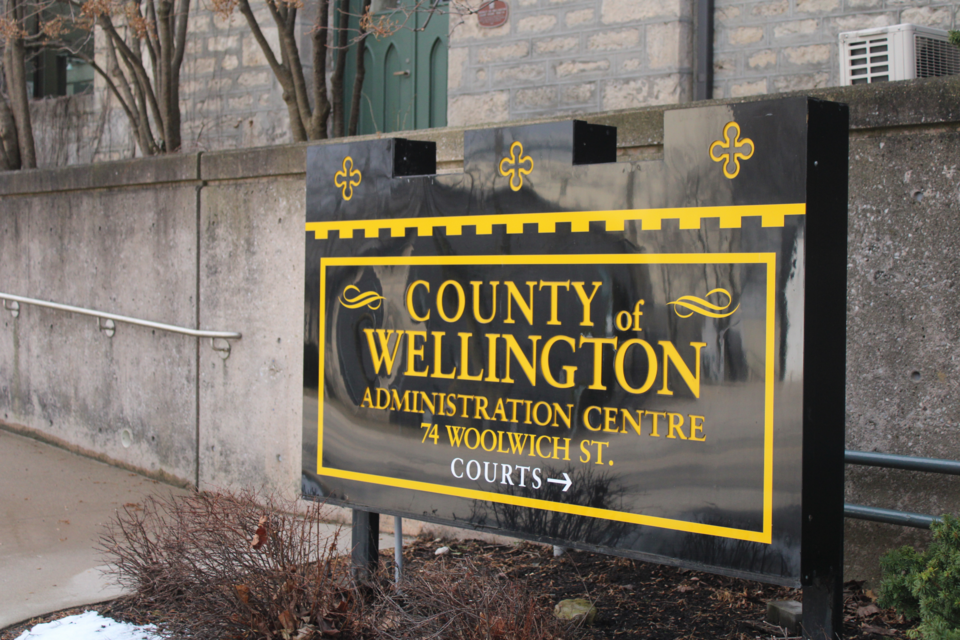COUNTY OF WELLINGTON – The roads and solid waste services (SWS) committee have deferred to County of Wellington staff to reach the goal set of halving the tax levy increase for Wellington County residents.
On Monday, county council passed a motion to find ways to reduce a projected tax levy increase of 2.5 per cent down to 1.25 per cent.
Roads and SWS were identified as the main drivers behind this tax levy increase and both committees met on Tuesday morning.
At the roads committee, county treasurer Ken DeHart called the target fairly aggressive as it means the need to cut, defer, remove or fund $1.4 million worth of expenses or additional revenues from the overall budget.
He noted the roads department makes up around 27 per cent of the tax levy and therefore would need to find $400,000 in order to meet its “fair share.”
Committee members began suggesting various means to make this happen such as deferring projects, equipment or taking on debt.
Warden Kelly Linton acknowledged he was struggling with what approach to take and asked staff what would be best.
Committee chair Andy Lennox agreed they needed guidance from staff on what projects are critical and what could potentially be deferred.
Don Kudo, county engineer, said that everything is critical and many projects had already been deferred to prepare a lean budget that is realistic on infrastructure needs.
“Following yesterday’s budget meeting I had a discussion with Joe de Koning, our construction manager, and I don’t think we can necessarily offer up a project,” Kudo said, adding that not everything is funded through taxes which further complicates this method.
Kudo also stressed deferring projects would also have a cascading effect on subsequent years.
After some back-and-forth discussion on various projects and why each was important, council appeared to be at a stalemate.
CAO Scott Wilson suggested, rather than a “nickel and dime” method, to add any amount needed to debt as it is fairer while keeping critical projects on schedule.
“That way, the pain…is spread across the whole county. It’s not just going to focus on roads, it’s not going to focus on solid waste,” Wilson said.
“If we want to focus on any one department, it almost pits one department against another. The easiest thing would be to cancel a couple of roads and bridges then we’re done but that doesn’t really share the pain.”
Lennox and Linton agreed that leveraging finances like debt, surpluses or reserves is the better option.
Wilson suggested a motion that endorses the roads budget but with a caveat that staff reach the 1.25 or less tax levy increase requirement.
Erin mayor Allan Alls said he wasn’t totally comfortable endorsing this as he doesn’t like solving problems with debt.
He was adamant that staff should take a closer look at cutting things out of the budget.
Wilson assured Alls that they will be looking at operational savings and included this wording in the motion.
Although there were some reservations on endorsement, the motion passed
Solid waste services committee
At the solid waste services (SWS) committee meeting which followed roads, DeHart noted that a large budget increase to the department relates to commitments made to service enhancements such as organics, leaf and yard waste pickup expansion.
DeHart set a target of $120,000 to cut in the SWS department to reach the 1.25 per cent goal.
Das Soligo, SWS manager, said their best method would be to reexamine revenue assumptions.
In November, he said they had to make an estimate of 2021 revenue based on tipping fees and curbside collection.
“There’s a lot of moving parts there, tipping fees increased 18 per cent but we didn’t adjust the overall budget number up,” Soligo said.
He explained this is because waste facilities were closed for a portion of the year and some landfill diversion programs, such as the green bin, had been launched which reduced the tonnage seen in 2020.
“With an additional month and a half worth of data, it would be useful to revisit those assumptions we made and if perhaps our approach was overly conservative,” Soligo said.
Committee chair Gregg Davidson put forward the same motion as was presented at the roads committee.
Wilson reminded councillors they shouldn’t assume the budget can reduced uniformly across all county departments.
He noted SWS could possibly find savings but didn’t think this would be an easy task for the Wellington Terrace long-term care home.
He also stressed that any approach taken will be felt in a future year.
“No matter what approach we take to get to 1.25 per cent increase, 2022 is going to be ugly or 2023 or 2024,” Wilson said, clarifying via email he was referring to a future tax levy increase in one of those years.
“We’ll do our utmost to smooth the impact and achieve that target for 2021.”
The SWS budget was also endorsed with the condition work is done to reach the 1.25 per cent goal.


